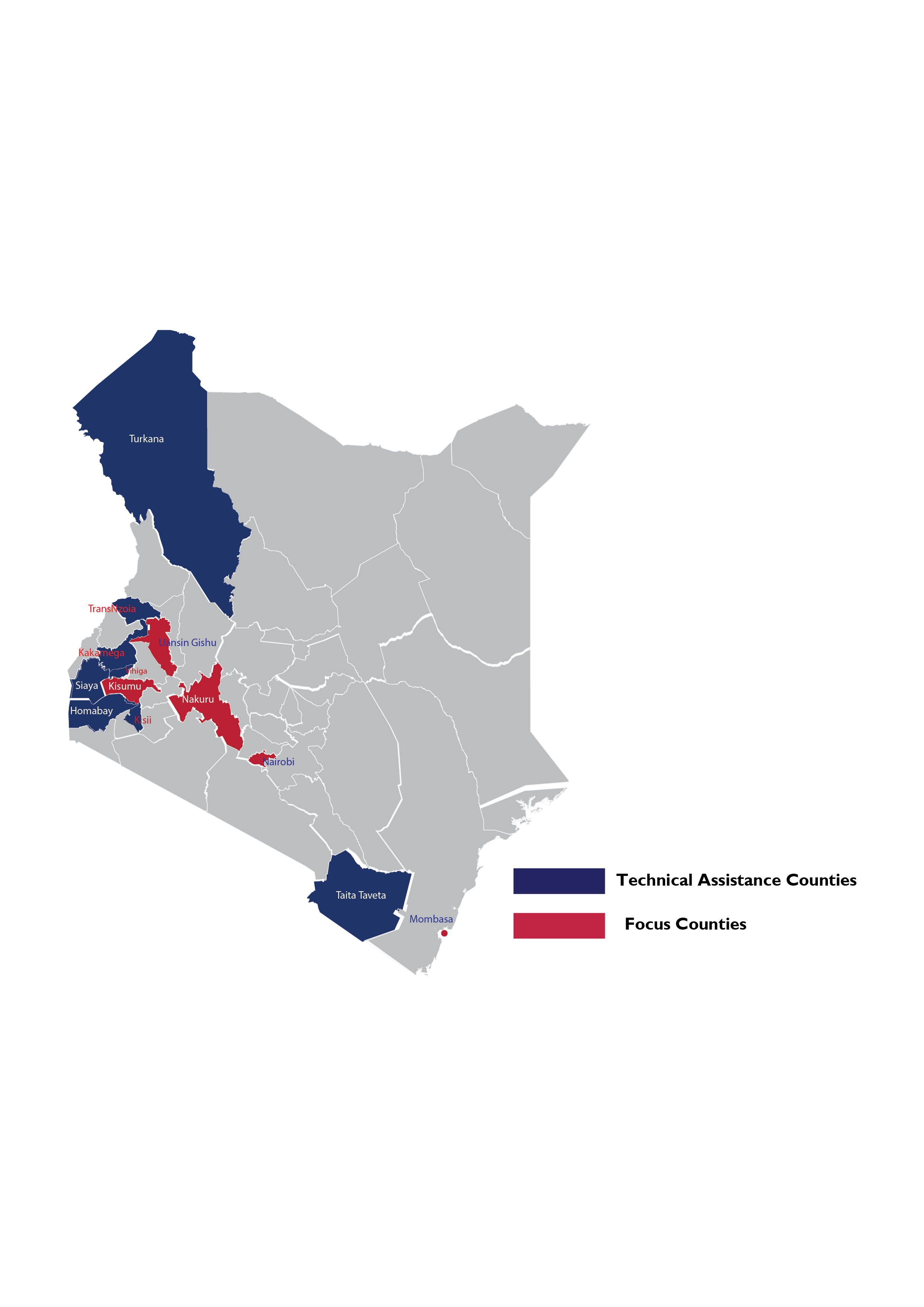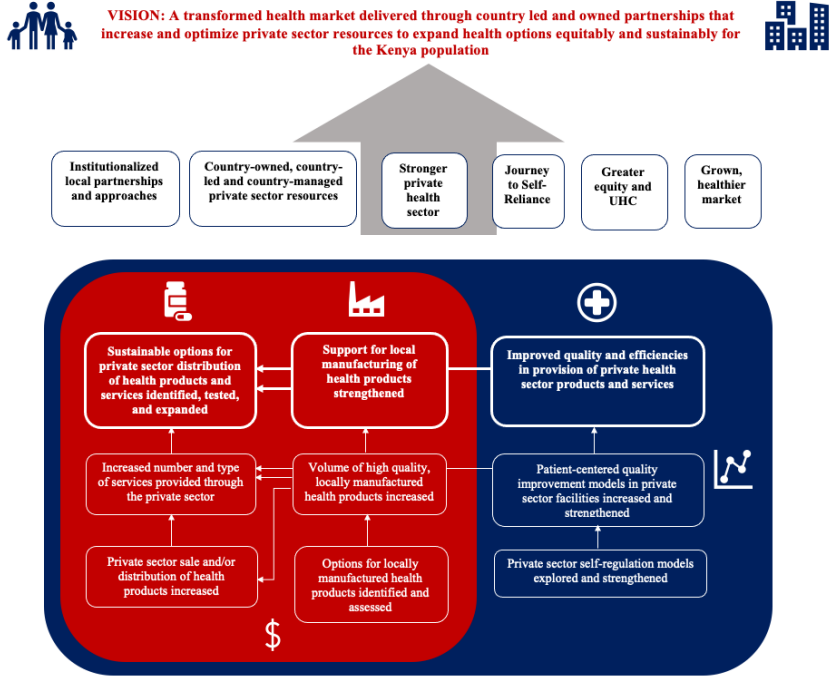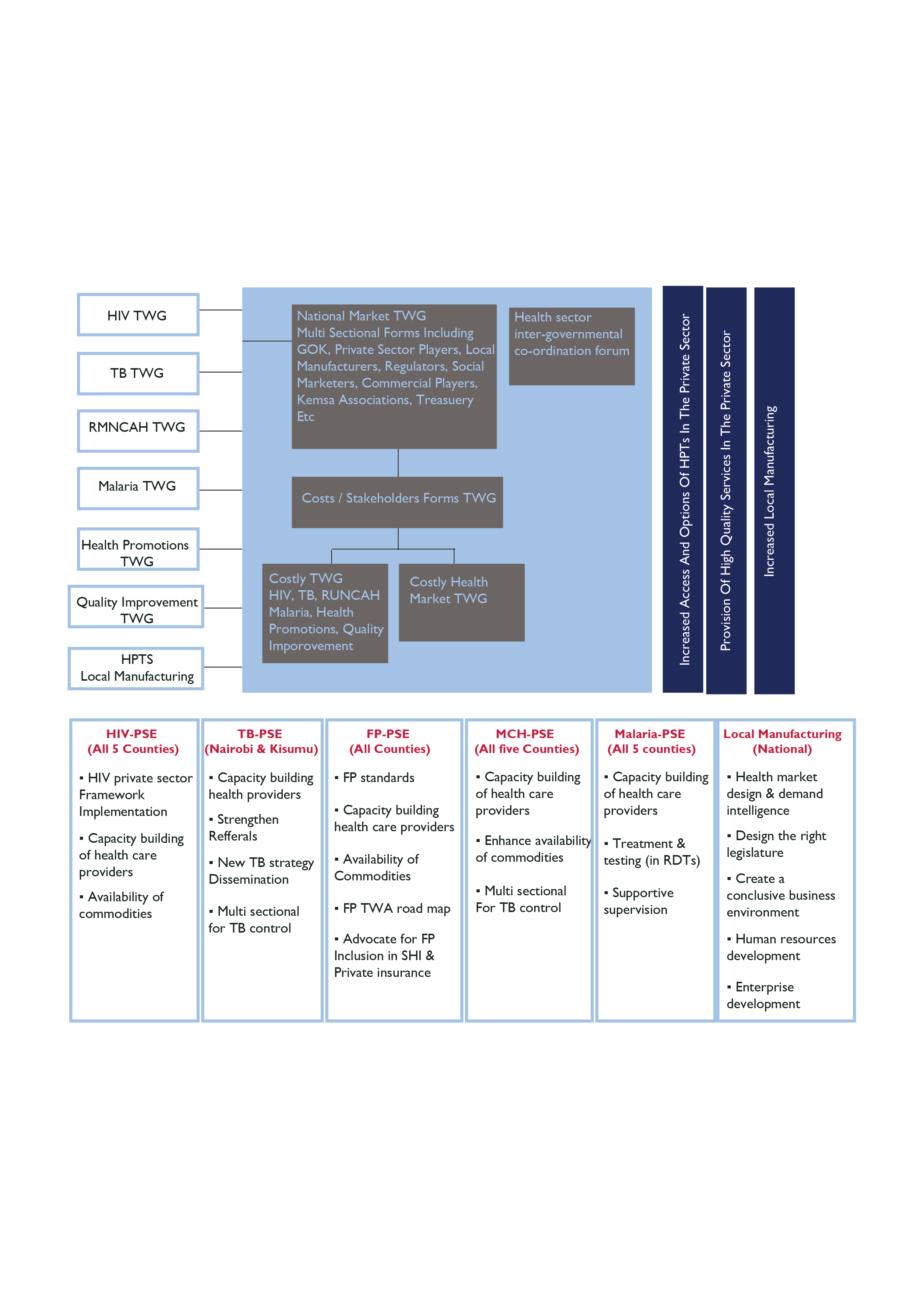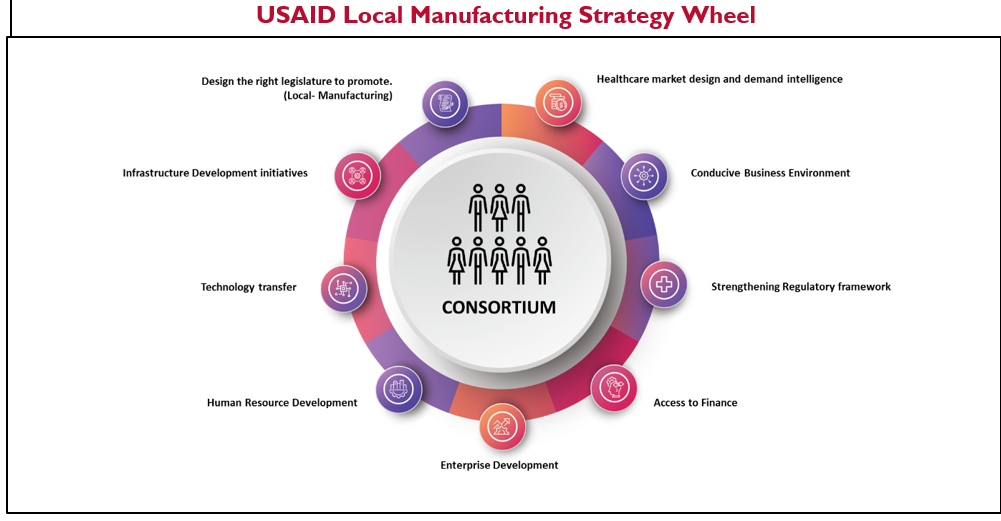With over half of all health facilities privately owned, the private sector plays a pivotal role in Kenya’s healthcare system. However, the sector faces several challenges, including counterfeits, the dominance of the public sector in some commodities, lack of enforcement by professional boards, lack of uniform standards for quality assurance and improvement, underutilization of local capacity, and inadequate incentives such as insufficient tax rebates and exemptions.
To address these challenges, a 5-year initiative (2023-2028), aims to enhance health outcomes by expanding the range of high-quality health products and services within the private sector. This initiative seeks to transform health markets in Kenya through country-led and Country-owned partnerships, actively engaging the private sector and local manufacturers. Utilizing market-driven strategies supported by Collaborating, Learning, and Adapting (CLA) principles, the program emphasizes equity and efficient resource allocation across five key health areas: HIV, TB, Malaria, Family Planning (FP), and Maternal and Child Health (MCH).

The USAID Private Sector Engagement Program will apply a holistic and collaborative effort. It will adopt a Total Market Approach (TMA) to crowd in new health technologies and products (HTPs). Additionally, the program will work closely with national and county governments in the key target counties to enhance public and private collaboration by enhancing the strategic alignment of goals and objectives between public and private sectors and deploying effective communication and collaboration mechanisms.

The Program main objectives include:
The Private Sector Engagement Program (USAID PSE) developed the overarching implementation framework which will guide the program implementation. It intends to support the establishment of the overall National Health Market Technical Working Group (TWG), which will bring together multi-sectoral partners, including GOK, private sector players, local manufacturers, regulators, social marketers, commercial players, KEMSA, Professional Associations, National Treasury, among others, and apply the total market approach to strengthen the existing health systems in Kenya.
The implementation framework continues to evolve as the program incorporates all the relevant feedback.

The alignment between the USAID PSE Program and Kenya’s local manufacturing initiatives is a pivotal development, signifying a substantial leap toward improving the accessibility and affordability of healthcare services for all. This collaboration holds great promise in contributing to the realization of Universal Health Coverage (UHC), a significant milestone in advancing the health and well-being of the Kenyan population.

The alignment between the USAID PSE Program and Kenya’s local manufacturing initiatives is a pivotal development, signifying a substantial leap toward improving the accessibility and affordability of healthcare services for all. This collaboration holds great promise in contributing to the realization of Universal Health Coverage (UHC), a significant milestone in advancing the health and well-being of the Kenyan population.